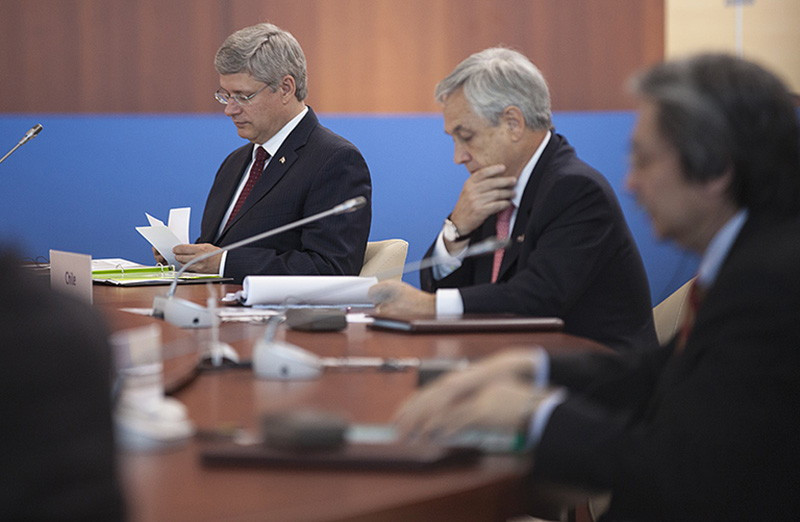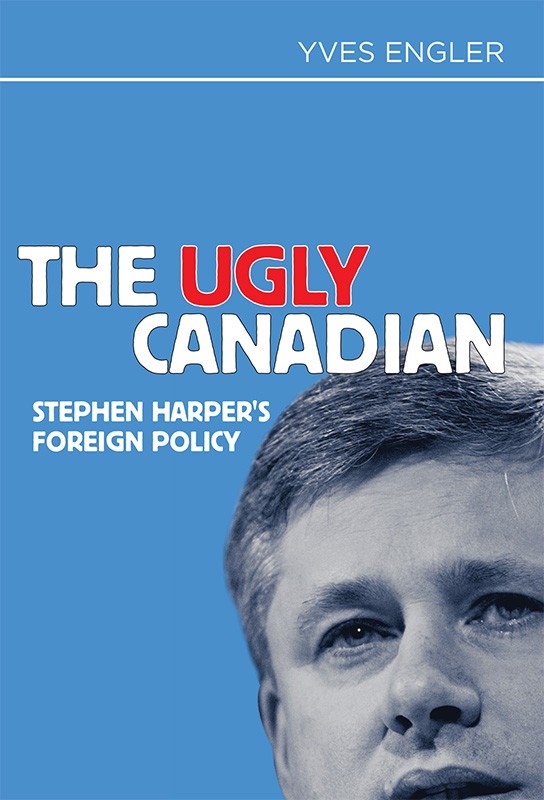The ugly face of politics
Prolific author brings damning assessment of Harper’s Policy to campus
Canadian Prime Minister Stephen Harper’s foreign policy record and trajectory are repugnant, according to author and activist Yves Engler.
“Harper’s agenda strengthens the pro-corporate policy trajectory. He has dramatically strengthened ties to the American empire,” said Engler, who visited campus on Monday, Oct. 28 to promote his book, The Ugly Canadian: Stephen Harper’s Foreign Policy, released by Fernwood Publishing in September.
Engler has been establishing himself as a grassroots radical historian of Canadian history.
A previous book, Lester Pearson’s Peacekeeping: The Truth May Hurt, examined the myths of the Nobel Prize winner and his complicity in Canadian and American imperialism, while another, The Black Book of Canadian Foreign Policy, dutifully accounted the litany of historical interventions, occupations and attacks by Canada in other countries.
Sponsored by the Council of Canadians, he is currently traveling across Canada to build opposition to the Harper agenda.
“This book and tour are a push back against Harper’s agenda,” Engler told The Uniter ahead of his talk at the U o W.
According to Engler, Canada is engaged in a low-level war against Iran, where Canadian forces and diplomats are involved in crushing Iran’s economy and occupying the borders of neighbouring countries.
The recent cutting of diplomatic ties should be seen as a prelude to war, Engler warned.
Harper has also dramatically increased the size of the military budget and established foreign military bases, while expanding the size and scope of the Canadian Special Forces, Engler said.
This, too, should be seen as preparation for future wars, he said.
Engler believes Harper’s policy agenda came to an apex in the repeated attempts to sabotage international initiatives to address climate change.
For example, the Conservatives are advocating against new climate policy while people are dying from climate chaos in Ethiopia and Bangladesh, he said.
“At the end of the day it’s a pro-corporate policy based around support for the tar sands.”
He added that Harper has aggressively lobbied against low-carbon fuel standards and against the fuel quality directive in the European Union, attempting to exclude tar sands fuel.
Harper’s success has been built around developing an “us and them” framework by developing a brand, according to Engler.
“The Conservatives have successfully built an appeal with Canadians based on this nationalist brand. They have built an electoral base even with those who don’t benefit from the corporate agenda.”
Harper’s success is further cemented by the support he receives from the business class who own and dominate the media.
“We’ve seen major protest and uprisings in many countries over austerity and the toppling of dictators but have a relatively OK economic situation - based on high commodities.
“People don’t seem to want to rock the boat right now.”
Published in Volume 67, Number 9 of The Uniter (October 31, 2012)









